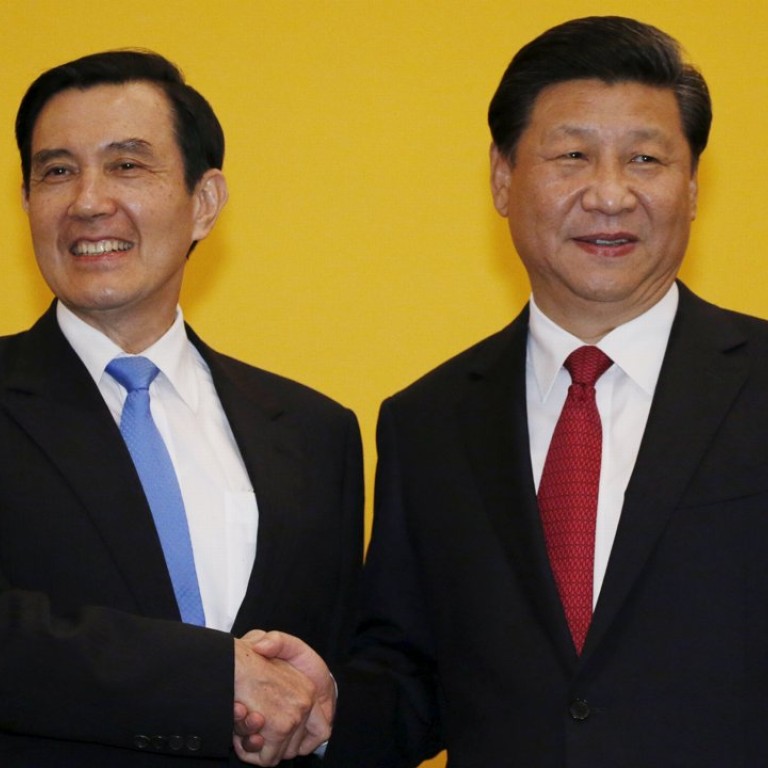
Historic meeting between Xi Jinping and Ma Ying-jeou protects status quo and cross-strait peace
The one-sided assertions in Mr Chih-yu Shih’s article, “Sino-Taiwanese relations still a bridge too far” (November 19), require clarification.
First, the historic meeting between President Ma Ying-jeou and mainland Chinese leader Xi Jinping (習近平) after 66 years of separate governance across the Taiwan Strait is widely welcomed. Governments from around the world, including the US, Japan, the European Union, South Korea, Russia, Singapore and Indonesia, have voiced strong support for the meeting either through statements or remarks by spokespersons.
As for domestic responses, an opinion poll released by Taiwan’s Mainland Affairs Council showed that 64.6 per cent of Taiwanese people approved of the meeting to jointly strive to safeguard cross-strait peace and status quo. In addition, 65.9 per cent of respondents agreed that the meeting helped to set a mechanism for regular meetings between leaders of the two sides. It promoted the long-term development of peaceful and stable cross-strait relations.
Second, Mr Shih’s statement that “such peace means death for Taiwan’s spirit of self-reliance” is misleading. During the meeting, President Ma had been consistent in his stance on the “1992 consensus of one China, with respective interpretations”. The core of this position is to highlight the Republic of China’s sovereignty and Taiwan’s dignity. This consensus, jointly reaffirmed during the meeting, provides the basis for the Republic of China to consolidate the current autonomy.
Since the meeting, Taiwan has not changed its position on cross-strait relations. It has insisted on maintaining the status quo of “no unification, no independence and no use of force” under its constitutional framework. As for the future of cross-strait relations, Taiwan will adhere to this constitutional framework and respect the free choice of its 23 million people.
Third, Mr Shih was wrong to say that “Taiwan’s relationship with the US gives it ... a vassal-state role, with the US playing the suzerain state this time. The Xi-Ma summit dampens the Taiwanese pursuit for sovereignty”. These are groundless and disparaging statements not worthy of comment.
In fact, the US welcomed the meeting between leaders on both sides of the Taiwan Strait and the historic improvement in cross-strait relations in recent years, and also encouraged further progress by both sides towards building ties, reducing tensions, and promoting stability on the basis of dignity and respect. This is enough to prove that the Ma-Xi meeting created a win-win-win situation for Taiwan, mainland China and the United States.
Ines Chang Huei-ying, deputy director, Taipei Economic and Cultural Office

